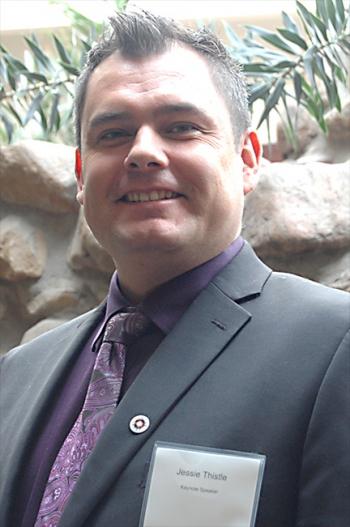Image Caption
To make a difference in homelessness for Indigenous peoples, a holistic approach is necessary.
Homelessness, says Jesse Thistle, the national representative for Indigenous homelessness for the Canadian Observatory on Homelessness, is not about “throwing money” at physical buildings. It’s about tackling the systemic issues that have as the end result Indigenous peoples living on the streets or couch-surfing.
“When we started the ground work from the grassroots and asking people what they believed homelessness to be – and it wasn’t a discovery, communities have always known this – it’s about being without all my relations. It’s about being without relationship to self, relationship to identity, relationship to kin, to the land, to waters, to ancestors,” said Thistle.
Policies such as Indian residential schools, Métis dispossession through the script system, and Inuit relocations were state driven to destroy the peoples’ relationship with the land. And in doing this Indigenous social institutions, which created healthy communities and gave meaning and significance to people, also fell victim.
“When we reframe into being without all my relations, it’s really kind of a holistic way of looking at homelessness instead of not having the money to have a home,” said Thistle. He believes that the government needs to put dollars into cultural and language programming, reconnecting people to their Indigenous roots and learning.
“I believe when we put the money into those programs, we will see a great kind of revitalization or an end to Indigenous homelessness or it will slow at least.”
Thistle has a personal story to go with his view: He was homeless and living on the streets in Toronto. He was adopted out to a white family at a young age. It wasn’t until he reconnected with his history and identity as an Indigenous person – he is Metis Cree from northern Saskatchewan – that he “got better.”
Thistle admits he’s “very ambitious” in his scope of what needs to be dealt with if Indigenous homelessness is to be taken seriously. And, he says, sometimes that presents an issue in gatherings such as the one hosted by Homeward Trust Edmonton on March 29.
The day-long meeting involved agencies, Indigenous and non-Indigenous, working toward an Indigenous housing strategy. Because people are experts in specific areas, said Thistle, it is sometimes difficult for them to see the wider picture.
But he does not have similar concerns with Homeward Trust. Thistle applauds the organization for the work it has done, noting that Homeward Trust was part of the national steering committee that built the framework for the broader national definition of Indigenous homelessness.
Susan McGee, executive director with Homeward Trust, agrees that homelessness is more than a structural-housing issue. It’s what she has heard from the grassroots as well as people like Thistle.
Taking a holistic approach to the issue was one of the table topics during today’s Indigenous gathering.
“One of the things a gathering like this helps us to do is take language that can be based in culture, based in really a depth of understanding that is historic and say, ‘What does that mean to a program? What does that mean to how we do our work?’ and to translate that spiritual awareness, that cultural awareness into something we can work on and deliver,” said McGee.
It’s through this wider approach, she adds, that they hope to bring longer term solutions to homelessness in the community.
McGee believes that both the federal and provincial governments have an understanding of the depth and breadth of what Indigenous homelessness is about.
“I think we have a ways to go to translate that into what does that mean in terms of a housing project, what does that mean in terms of service delivery?” said McGee, who believes that it is the community, not the federal or provincial governments, that must design a response to meet the needs.
McGee says funding made available for supportive housing and affordable housing in both the recent federal and provincial budgets is cause for optimism, but she is still waiting for the details as to how that money will be targeted.
“There’s so much need in so many areas. Honestly, I think it’s a given that it’s not enough (funding). Even when there’s so much money... The fact is that the deficit in terms of investment in social housing and subsidized housing has fallen way behind other countries where there has been a more consistent investment,” she said.
“But when we get into it at a community level and prioritize, perhaps we will be in a better position to say, ‘Yes, we have a lot of needs, but our priorities need to start with supportive housing and we need to do that work in a way where the Indigenous community can meet and describe and define how that’s done,’” said McGee.
The information garnered from the Indigenous gathering will be used to both update the plan to end homelessness and to get direction moving forward.
Homeward Trust administers funding and allocates according to existing policies.
“We do that in a supportive role, so we’re looking for direction from community in what role we should play,” said McGee.
She hopes to be ready in time to meet any funding announcements that come from the federal and provincial governments.

